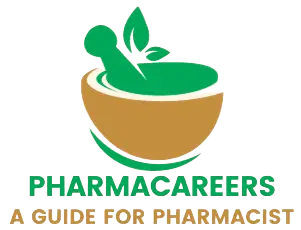-
Congestive Heart Failure (CHF): Pathophysiology
Congestive Heart Failure (CHF) Congestive heart failure is a long-term condition in which heart can not pump blood well enough to provide normal supply to body. Due to reduced cardiac output, body cannot perform its normal metabolic needs. The reduced supply of oxygen and nutrients may lead to inadequate tissue perfusion, vascular, cardiac and pulmonary…
-
IUPAC System of Nomenclature of Organic Compounds
IUPAC System of Nomenclature of Organic Compounds The International Union of Pure and Applied Chemistry (IUPAC) provides a standardized system for naming chemical compounds. This system ensures clarity, consistency, and international acceptance. Understanding IUPAC nomenclature is essential to study organic chemistry. Organic chemistry serves as the backbone of complex scientific disciplines ranging from medicine to…
-
DSSSB Latest Pharmacist Recruitment 2024
DSSSB Latest Pharmacist Recruitment 2024 Delhi Subordinate Services Selection Board (DSSSB) invites online applications from eligible candidates for recruitment to the post of pharmacist (dispenser), pharmacist (allopathic), junior pharmacist against vacancies in respect of various Departments / Autonomous Bodies / Local Bodies of Government of NCT of Delhi. Total number of posts: 133 VACANCY NOTICE…
-
Biotechnology with reference to pharmaceutical sciences
Introduction Biotechnology is the multidisciplinary field that involves the integration of natural sciences and engineering sciences in order to achieve the application of organisms, cells, parts and molecular analogues for products and services. The concept of biotechnology encompasses a wide range of procedures for modifying living organisms for human purposes, cultivation of plants and breeding…
-
Methods of Expressing Concentrations
Solution concentration In the techniques of quantitative analysis, the use of solution requires some basis for the expression of solution concentration. As a qualitative expression of concentration, we always use the words diluted or concentrated when referring to a solution. As the term dilute means, there is very little amount of solute is present and…
-
Medicinal Chemistry: Physicochemical Properties in Relation to Biological Action
Medicinal chemistry is a branch of chemistry which deals with synthesis, design and development of pharmaceutical drug. Medicinal chemistry combines expertise from pharmacology and chemistry. Generally medicinal chemists work to make new compounds, determine their effects, modify the structure to minimize the side effects and study the pharmacokinetics properties of the drug. In this article…
-
Pharmaceutical Analysis- Scope and Different Techniques of Pharmaceutical Analysis
Introduction Pharmaceutical analysis is a branch of chemistry, which deals with the study of various processes that are involves- the identification, determination, quantitation and purification. Different Techniques of Pharmaceutical Analysis used for the separation of the components from the mixture and for the determination of the structure of the compounds that make up pharmaceuticals, and…
-
Introduction to Biomolecules
Introduction Biomolecules plays an important role in development, support and reproduction of living organisms. The human body is composed of trillions of cells that performs the essential functions of life. To perform these functions cell takes help from several organic molecules. These organic molecules are known as biomolecules. Biomolecules presenting wide ranges of sizes and…
-
Pharmacology- Introduction, Branches of pharmacology, General terminologies in pharmacology
Introduction The term pharmacology is derived from two Greek words pharmakon means drug and logos, means science. Pharmacology is the scientific study of the effects of drugs and chemicals on living organisms. It includes study of sources of drugs, their mechanism of action, toxicity, absorption, distribution, metabolism and excretion of drugs. Drugs and their uses…
-
Microbiology- Definition, History, Types of microorganisms, Branches of microbiology, Scope of microbiology
What is microbiology? Microbiology is the branch of science which deals with study of microorganisms, which are invisible to naked eyes. It studies the function, structure and economic importance of living organisms. Some microbes are helpful to human beings and some are harmful. Study of microbes plays an important role in medical sector to analyse…
Search
Recent Posts
- Bevacizumab Explained: Structure, Mechanism of Action, Clinical Uses, and Side Effects
- Fluconazole: Mechanism, Clinical Uses, Dosage, Side Effects, and Precautions
- Cheaper Cancer Treatment: How GST Cut on Lifesaving Medicines Brings Hope
- Montelukast: Structure, Pharmacology, Mechanism, Uses, Side Effects, and Clinical Guide
- Biopsy: A Cornerstone in Modern Medical Diagnosis
Categories
- Biochemistry
- Biostatistics
- Biotechnology
- Blog
- Chemistry
- Community Pharmacy
- Hospital Pharmacy
- Human Anatomy And Physiology
- Inorganic Chemistry
- Medicinal Chemistry
- Microbiology
- Miscellaneous
- Novel Drug delivery Systems
- Organic Chemistry
- Pathophysiology
- Pharma Updates
- Pharmaceutical Analysis
- Pharmaceutical Jurisprudence
- Pharmaceutics
- Pharmacognosy
- Pharmacology
- Pharmacy
- practice mcq
- Previous Question Papers
- Social Pharmacy
- Study Material
Archive
Tags
biochemistry bpharmacy third semester Construction free practice mcq inorganic chemistry microbiology microbiology mcq pathophysiology Pharmaceutical Engineering pharmaceutics Pharmacology pharmacy practice mcq physical pharmaceutics physical pharmaceutics 2 practice MCQ for govt pharmacist exam



